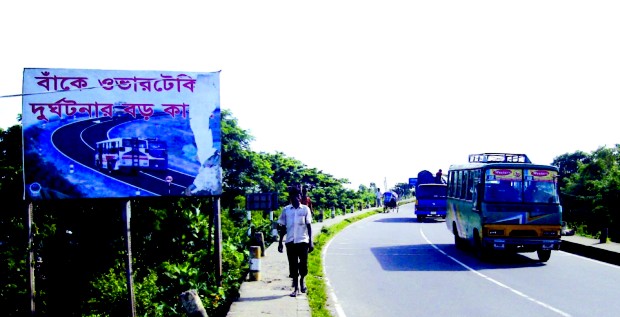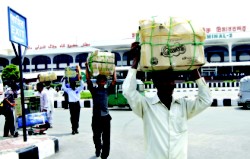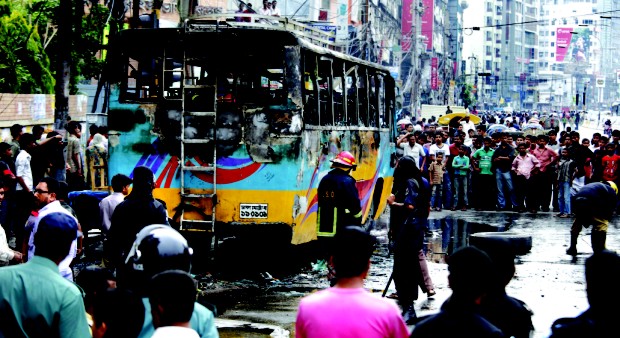| Home - Back Issues - The Team - Contact Us |
 |
| Volume 10 |Issue 24 | June 24, 2011 | |
|
|
Letters Now or Never It is needless to explain the condition of Bangladesh in the monsoon season to all the readers owing to the fact Bangladesh is a country of rivers. The old Buriganga's condition is already a devastating one and most of the marine species have gone extinct and their number is decreasing as the days pass. Although the government and the local people have taken steps to reduce the pollution, the final result is almost negligible .The water that is supplied to all the houses comes from underground and in many places the water level underground has already gone too deep. According to research these acts are creating the risk of an earthquake. Sadly enough this water cannot fulfill the requirement of city dwellers. So using the river water is a very good option. But the immense amount of pollution has made the river water poisonous. So citizens, lets unite and take action against all those who are risking our lives and save the rivers. If nature shows its fury then almost no one can stand against it and Japan is the best example for that. It is time to think about nature and regulate it properly, otherwise it will be too late to recover and it will be no matter of surprise that people will have to fight for pure and safe water. So help the nature and contribute in every possible way because our life is directly and indirectly dependent on nature … Md Mahbubur Rahman Highway Race! As I cross about 450 kilometers to reach my district from my university, I have always found myself a spectator of different road collisions. Every time I cross the Dhaka-Chittagong highway by bus, I find at least a couple of accidents in different places. Most of the time the cause is a truck or a bus. More or less, their tendency to overtake other vehicles can be identified as the major cause of these accidents. I wonder if it is possible to keep the bus drivers in check by asking them to ride as passengers and see how it feels. Apart from taking many lives, these accidents, create serious traffic jams, clogging the roads for hours. Proper monitoring can be an effective solution. My urge to the concerned authority is that they assure the proper management of road transportation to minimise the repetition of these horrendous accidents. Mahmudul Hasan Hemal
National Crisis
At present our honourable national leaders share opposite views in regards to the fate of the Caretaker Government. The opposition parties have started a movement in favour of this system whereas the ruling party is determined to abolish it. As the ruling party they have to obey the judgment of the court, which is the father of our constitution. Actually, Caretaker Government was established to manage a national crisis in 1996. For the implementation of this new doctrine we have made the 13th amendment in March 28, 1996 to our constitution. This system introduced the provision of a non-party caretaker government to the constitution of our country (Chapter 11A, Article 58B-58E). Under this system, we have observed all national elections from its inception. The people of our country expressed their views without facing any kind of major obstacles or threats to select their national leaders. If we look at the word 'Democracy' we will see it originated from the Greek words 'Demos' and 'Kratos' which mean 'people' and 'power.' From the views of Political Anthropology, democracy means the power of the people. As the people are the essence of our country, the government and opposition parties should come forward under the same platform to take immediate measures in which they can save the lives of people. They should form a Citizen Forum (CF) consisting of social leaders (Teachers, Religious Leaders, Community Leaders, etc) private sector representatives, professionals activists (Journalists, Lawyers, etc.) cultural activists, representatives of indigenous community, members of the minority and disabled persons, youth representatives, women leaders, local elected body representatives, representatives of civil society organisations/NGOs, government officials who will act as facilitators to conduct a voting procedure for any immediate national crisis. The forum will also take necessary initiatives for the participation of all people in these noble activities. This forum will take the responsibility of publishing the result of the elections through the direct participation of all concerned bodies. The results will have to be acknowledge by all parties. Md Nasir Uddin
Submission Guideline: Letters to the Editor, Star Diary and Write to Mita, with the writer's name and address, should be within 200 words. All articles should be within 1,200 words. A cover letter is not necessary, but every write-up should include the writer's name, phone number and email address (if any). While The Star welcomes unsolicited articles and photographs, it cannot accept the responsibility of their loss or damage. The Star does not return unsolicited articles and photos. Response time for unsolicited write-ups ranges from three weeks to two months. All articles submitted are subject to editing for reasons of space and clarity.
Copyright (R) thedailystar.net 2011 |


